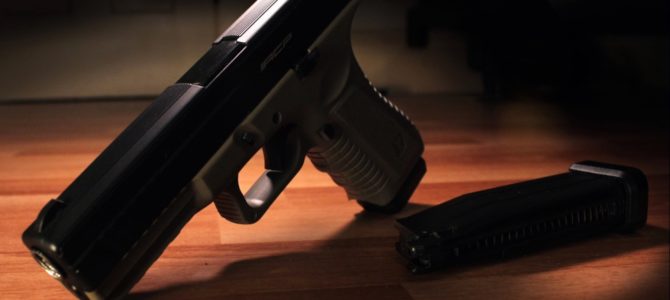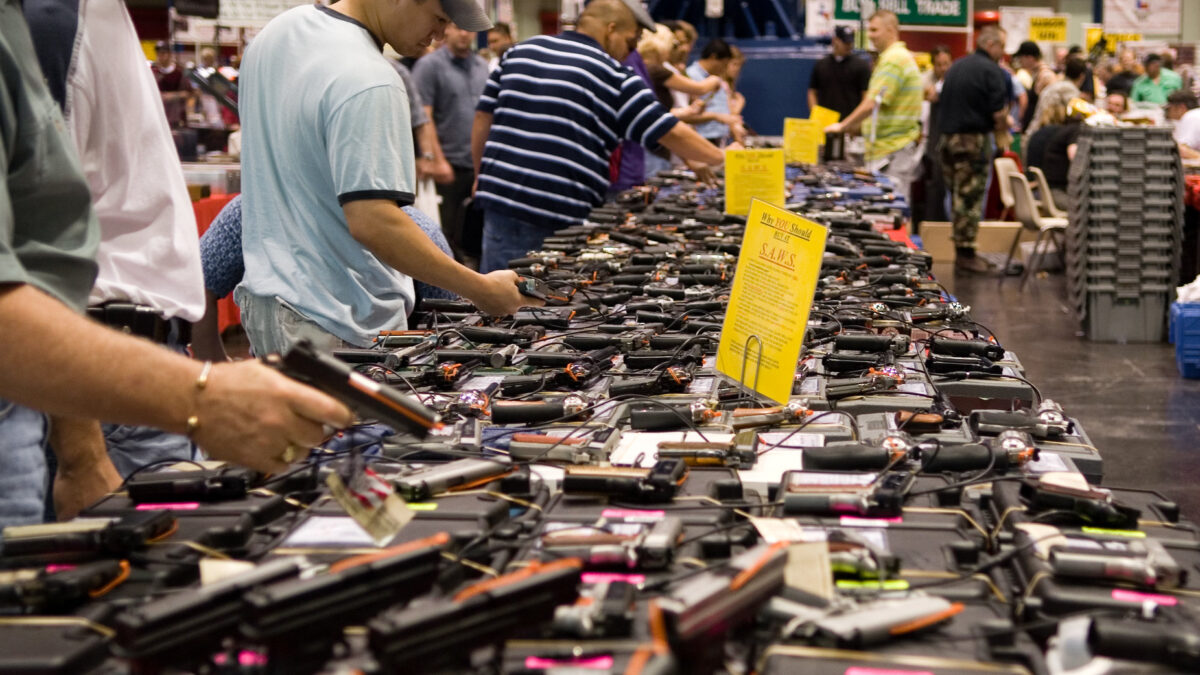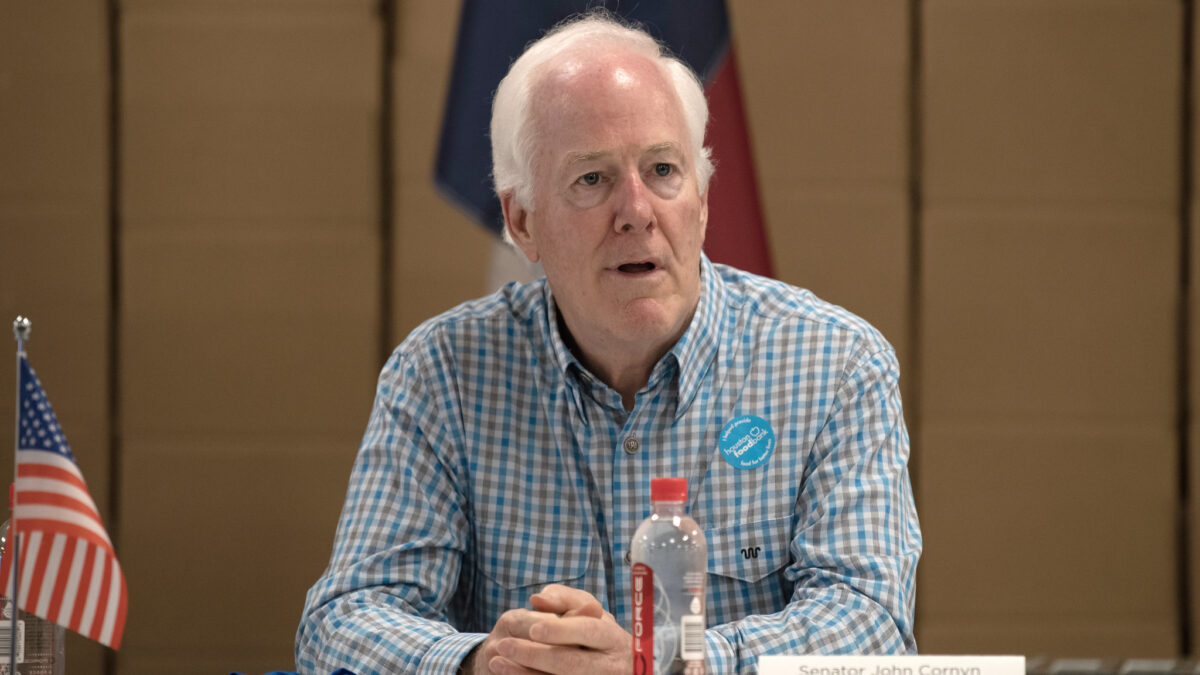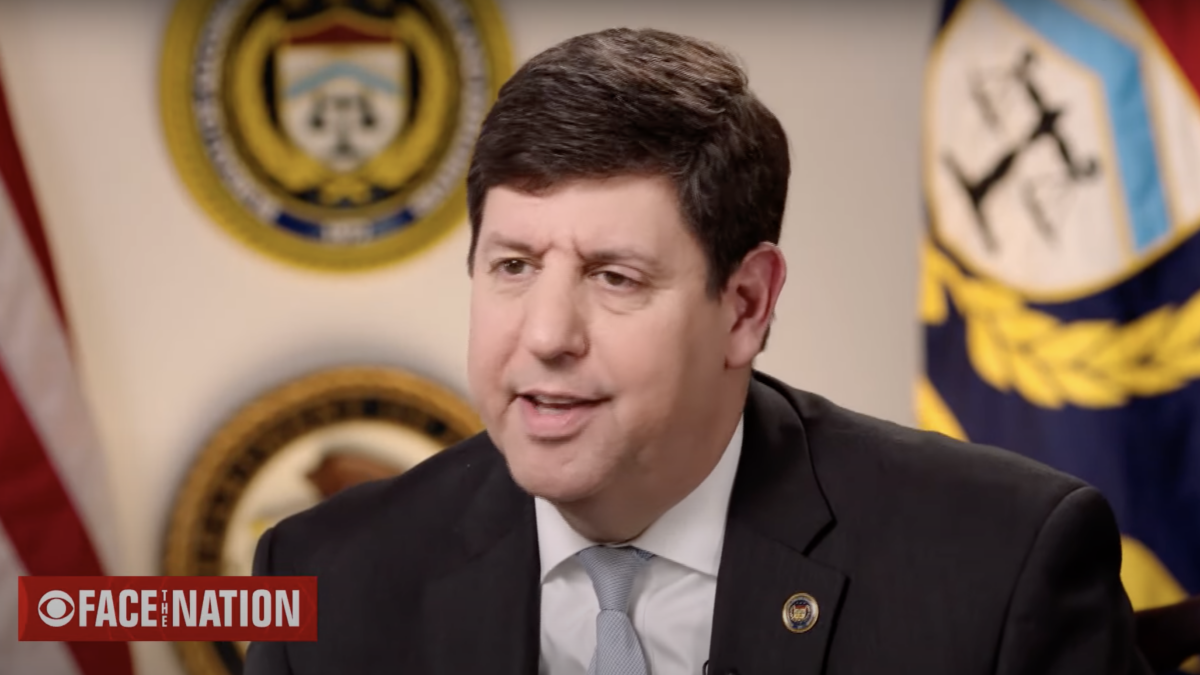
Gun control groups are downright ecstatic with Congress’s opening salvo against law-abiding gun owners. It’s not because anything Congress is proposing would actually stop criminal misuse of firearms. It’s because, for them, it’s just the beginning.
That’s their words. Not ours.
U.S. Rep Mike Thompson, D-Calif., introduced H.R. 8 — the Bipartisan Background Checks Act of 2021 — that would criminalize the private transfer of firearms between law-abiding gun owners. A companion bill, S. 529, was introduced in the U.S. Senate by Sen. Chris Murphy, D-Conn., although “bipartisan” might be misleading.
At introduction, just three Republicans signed on to co-sponsor S. 529. This was soon to be joined by the introduction of H.R. 1446 by Democratic Whip James Clyburn, D-S.C., whose the Enhanced Background Checks Act of 2021 would extend background check delay periods to up to 30 days and put the onus on law-abiding citizens to prove their innocence to the government.
The government wouldn’t be so brazen as to require a citizen to prove he or she can exercise a constitutional right if it were any other fundamental civil liberty. Imagine having to get the government’s permission before you could call your elected officials to oppose legislation. Yet, Clyburn told NPR his legislation “is a good first step.”
Gun Control Giddiness
“This is a huge moment for our movement,” said Moms Demand Action’s Shannon Watts, reports The Hill. Everytown for Gun Safety’s John Feinblatt said, “There’s never been a better time for federal action,” adding the legislation is “unfinished business” for what is being called a gun control “trifecta” between Speaker of the House Nancy Pelosi, D-Calif., Senate Majority Leader Chuck Schumer, D-N.Y., and President Joe Biden.
“Passing this legislation is the bare minimum. It’s the first step in comprehensive action,” said Max Markham, the policy director for March For Our Lives. All three gun control groups are financed by antigun billionaire Michael Bloomberg, who spent more than $1 billion for gun control in the 2020 election.
When she heard of the bill to outlaw private firearm transfers, Newtown Action Alliance’s Po Murray, chairwoman of the Connecticut-based gun control group, told a reporter, “We’re thrilled that this bill is being introduced,” adding, “[it’s] the first step in a long process that is needed to pass more federal legislation.”
Another Connecticut-based gun control organization, Sandy Hook Promise, said the legislation was a “necessary first legislative step.” Indeed, the bills are essentially the same gun control bills that passed the U.S. House of Representatives in the last Congress but never moved in the Senate. Why? Because both pieces of legislation are fraught with problems.
Criminalizing Private Sales
Thompson’s universal background checks bill sounds good on paper but gets tangled up quickly in the details. The first, and biggest, problem is that universal background checks won’t work without a national firearm registry — which is exactly what President Barack Obama’s Justice Department told him in 2013.
The legislation ignores other Justice Department warnings, especially the fact that criminals overwhelmingly obtain firearms illegally. The Justice Department’s Bureau of Justice Statistics reported that about 90 percent of the firearms possessed by inmates during their crimes were illegally obtained, mostly through theft or the black market.
This legislation won’t stop that. What it will do, however, is make criminals out of law-abiding citizens who might sell a firearm to their neighbor of 10 years, if the sale isn’t facilitated through a licensed firearm retailer.
It also threatens to swamp the FBI’s National Instant Criminal Background Check System, causing outages and delays. It will also burden licensed retailers by exposing them to license revocation if they make a paperwork error while performing this government service and product liability lawsuits for accidents involving the firearm and, if the Protection of Lawful Commerce in Arms Act is repealed, for the subsequent criminal misuse of the firearm.
The horrific tragedies gun control groups point to for their universal background check arguments ring hollow too. The tragedy in Newtown, Conn. began with that murderer stealing his mother’s firearm. The murderer in Aurora, Colo., passed background checks, as did the murderers in the incidents in Sutherland Springs, Texas, and Parkland, Florida. What’s needed isn’t more background checks, but better background checks that make sure all disqualifying information and adequate resources are submitted to the FBI when appropriate.
The Loophole Lie
Clyburn’s bill isn’t any better. His “enhanced background check” claims to close loopholes, but no loophole exists. National Review’s David Harsanyi reported that the bill’s premise is based on a false narrative. The murderer at the Emmanuel AME Church in Charleston, S.C., didn’t slip through a loophole. Local prosecutors failed to respond to the FBI’s request for case information when they delayed the background check for his firearm purchase.
Regrettably, NICS never followed up to complete its investigation. Had they, the tragedy could have been prevented. In truth, 91 percent of background checks receive an immediate response within minutes.
Just 9 percent enter a “delay status,” and many times this is because of common names and birthplaces. Eighty-eight percent of those are resolved within three business days and 94 percent are resolved within 10 days. The law also doesn’t tell firearm retailers they must transfer a firearm after a three-day delay, only that they are allowed. NICS informs ATF daily of all denied background checks.
Instead, Clyburn proposes that if a background check enters a delay status, it can be held for 10 business days. If it isn’t resolved in that first 10-day period, it could enter another 10-day delay, during which the purchaser must prove his or her innocence to the government. That’s un-American.
The frightening part is, this is crack in the dam that gun control advocates are thirsting for — the opportunity to open the floodgates to all the gun control legislation they’ve proposed, no matter how unconstitutional or ineffective in making our communities safer.
All of this ignores the fact that in 2020, Americans voted for their gun rights 21 million times, with more than 8.4 million for the first time. They did this when they went to the gun counter, passed the background check, exercised their Second Amendment rights, and bought a gun.









